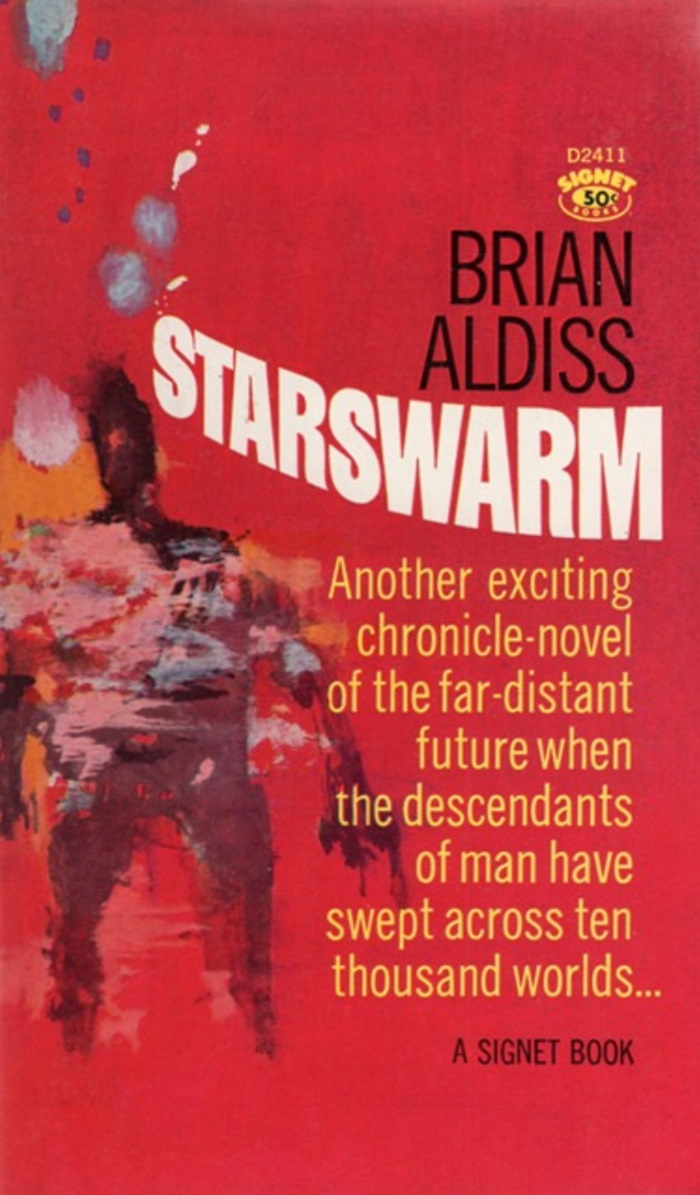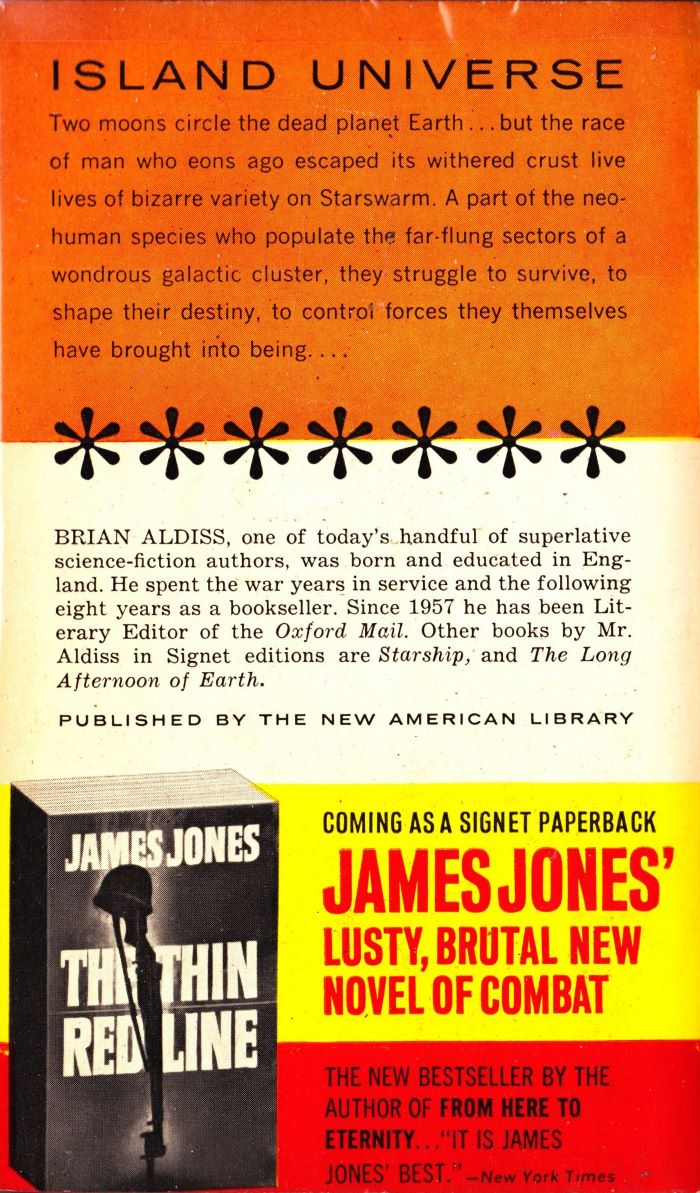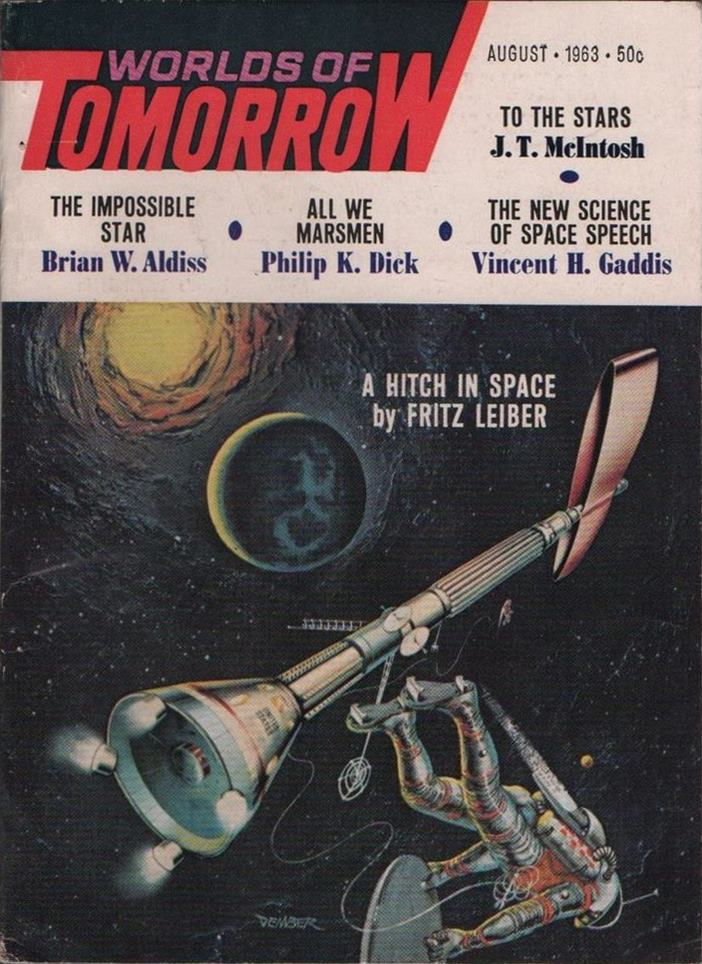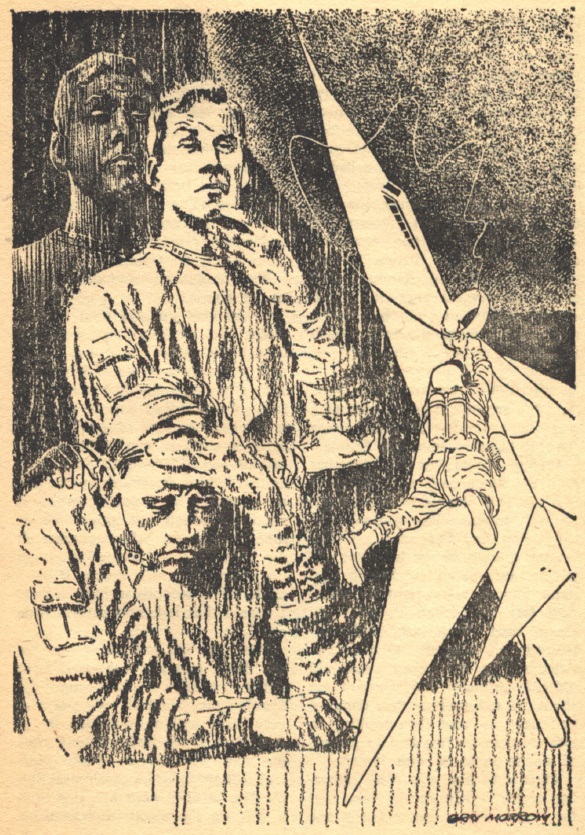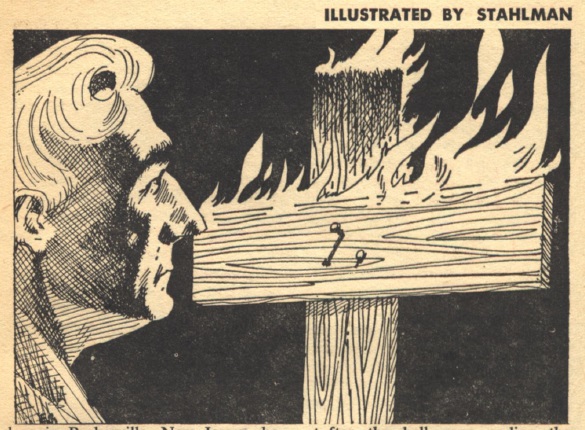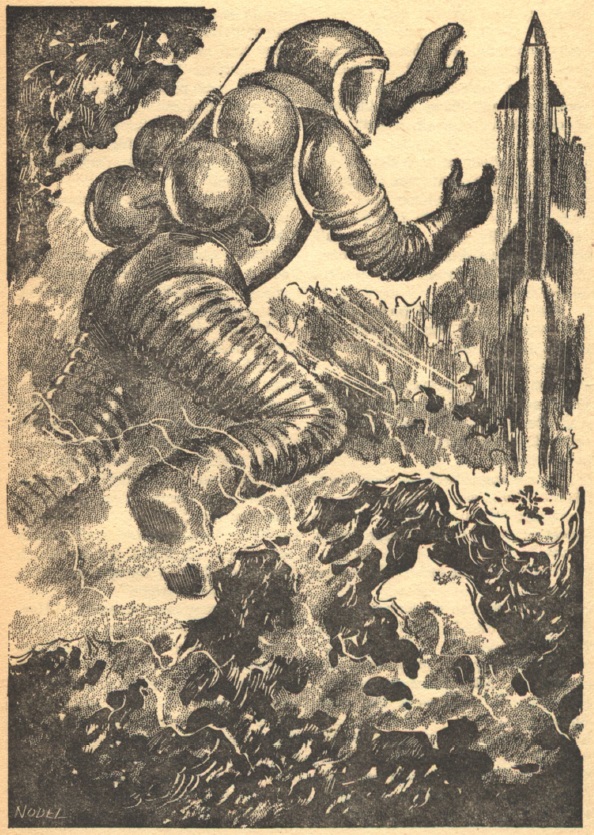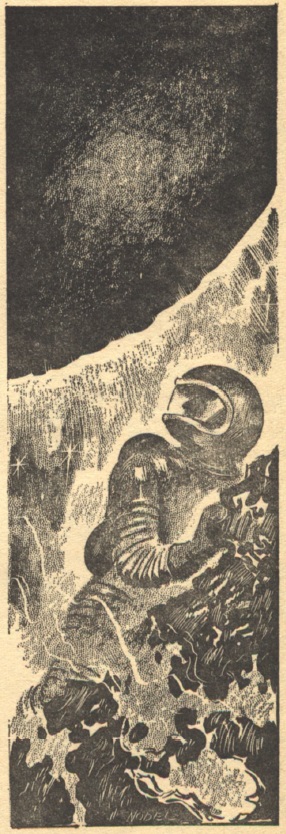
by Mark Yon
Scenes from England
Hello again!
We seem to be heading into warmer weather here in England. Say it quietly, but Spring might actually be here.
 [Flowers in Stratford upon Avon]
[Flowers in Stratford upon Avon]
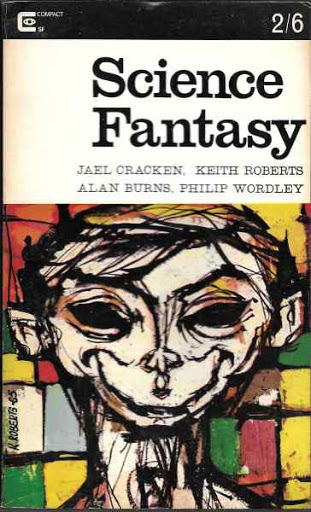
[Art by Keith Roberts – who else?]
This month’s ‘arty’ cover is by the prolific Keith Roberts, who seems to be everywhere at the moment. His colour artwork was last seen on the cover of the January issue, this one to my mind is just as odd. Are British magazine covers meant to look like they are painted by a child? I despair, especially when I see the covers for the US magazines, which by comparison are so much more than what we get here. The best that can be said here though is that they reflect the changes in the magazines at the moment. They are determined to be different.
The Editorial this month mentions the up-coming British Worldcon later this year – now less than four months away! – and how to apply to attend. It also enquires about letters on the idea of genre and also mentions that there will be a letters page – soon! However, before readers get their hopes up that Science Fantasy will take on other New Worlds staples like the Ratings list – it’s not going to happen.
To the stories themselves.
The Impossible Smile (part 1), by Jael Cracken
Last month our first story was one by the up-coming Worldcon Guest of Honour, Brian Aldiss. This month – its actually the same, though Brian is writing under a pseudonym. (Why do authors do that?)
The Impossible Smile begins with an assassination. Jim Bull, leader of the British Republics is killed in his bathroom. The assassin escapes to a hall near Norwich, the nation’s capital, where Conrad Wyvern lives. It appears that the dictatorship are hunting for telepaths. Although Wyvern is working for the Republics in training new recruits, he is also a man with a secret, and a determination to revenge the apparent death of his sister.
The Impossible Smile is another dystopian future. It reminded me of the future depicted by Hilary Bailey in Moorcock’s New Worlds in the July/August 1964 issue. This covers similar ground but being Aldiss-by-another-name, is in my opinion, better written.
It is quite understated in the way it describes some of the horrors this future holds. Troops shoot citizens with little provocation and this seems to be accepted.
Suspects are taken for interrogation at the base on the Moon and, in a nod I rather suspect is to Orwell, all there work to try and support the supercomputer rather amusingly named ‘Big Bert’. (The American computer by comparison is amusingly named ‘Fall Guy’.)
Weirdly, The Impossible Smile comes across as a mixture of George Orwell’s 1984 and Ian Fleming’s James Bond, with a touch of A E van Vogt’s Slan, a combination I am sure is deliberate. The general tone is a little uneven however, lurching from torture to comedy sometimes in the same paragraph.
Nevertheless, there’s a lot I liked about this one and a great cliff-hanger ending. Another strong start to an issue, and I look forward to the last part next month. 4 out of 5.
The Middle Ground, by Keith Roberts
Another issue, another Anita story by Keith Roberts. This time, our teen-witch meets a lonely ghost, recently killed in a road accident. She discovers why the ghost is still haunting around The Dog and Duck and after a bizarre matchmaking ritual with the local witch Controller, manages to get the spirit to leave to a better place. A relatively minor tale, which has the blessed relief of there being a lack of Granny Thompson in this story, although she does appear briefly. Little to add here other than what has been said before. Fans will like it, others will remain unmoved. 3 out of 5.
Housel, by Alan Burns
A weird one. A housel appears to be a mental magnifier that transforms where you live into where you’d want to live, creating a virtual reality environment. This one sets things up nicely but when it attempts to add aliens and interplanetary warfare it becomes too silly and far-fetched for me. There’s an interesting idea here but when it is pushed to its extremes just wouldn’t work. 2 out of 5.
Vashti, by Thomas Burnett-Swann
Perhaps this month’s most anticipated story (at least, by me). Having taken on Greek mythology in the Blue Monkeys serial, which has been one of the highlights of recent Science Fantasy issues for me, this time around Thomas takes on Persian mythology in this novelette.
It is the story of the dwarf Ianiskos, who has moved from Greece to Persia with King Xerxes. Vashti is the King’s wife, who up to now has been barren, despite the King wanting children. Under the threat of death, Vashti leaves the King and returns to her land of Petra, followed by Ianiskos.
The land of Persia is an area rich in mythology to choose from and this is a great story, written in Burnett-Swann’s lyrical fashion. The way that Thomas rewrites these stories for contemporary audiences is still magical. 4 out of 5.
Timmy and the Angel, by Philip Wordley
Another story from Philip, last seen in the March 1965 issue. It is a minor tale to finish the issue on. A story of how an alien ambassador, who has taken the form of an angel, manages to get seven-year-old Timmy to use his latent telekinetic powers to make the Human Race take pause before launching themselves into Space. It’s a nice enough first contact story which trades on the innocence of children to do something for the greater good. Well-meaning and generally positive, it’s about as anti-war as you can get. Think of it as an alternative to Clarke’s Childhoods End, with aliens guiding humans towards mutual benefits for all. But in the end, perhaps not one that’ll be remembered for too long. 3 out of 5.
Summing up Science Fantasy
Another issue that I liked a lot. The Cracken/Aldiss serial is good, the Anita story acceptable, but the novelette by Thomas Burnett Swann is the best story of the issue by far. My only quibble with it is that it is very similar in style to the serial of a few months ago.
The Second Issue At Hand
This month’s New Worlds was heralded as being special and I was hoping for a bit of a treat.

[Art by Robert J. Tilley ]
The Robert J. Tilley cover though is a bit of a disappointment and looks rather cheap, although unusually the inside front cover shows us more than normal:

And what handsome chaps they all look! This might be promising, after all.
Oh, but hang on – the editorial is a guest one by none other than E J (John) Carnell, the recently deposed editor of New Worlds.
Now, I must admit that Mike Moorcock and the new staff of the magazines have always been respectful to the efforts made by John and valued his contribution to the genre, even when minor mortals such as myself have been less positive. As expected, this is a self-satisfying, rallying call acclaiming the importance of British SF, not just to us regular readers but also to the world. It is a bold statement, which is uncharacteristic of us normally self-restrained Brits. Perhaps that’s why I’m uncomfortable about it.
Time Trap, by Charles L. Harness

[Art by James Cawthorn]
The novella begins in a court. Jon Troy and his telepath wife Ann are accused of murdering leader Provinarch Blogshak. The wife has been convicted already and put under some sort of drugged suspended animation, but Jon seems strangely unperturbed by his death sentence. He manages to avoid incarceration on a legal technicality, expertly manoeuvred by his advocate Mr. Poole. On leaving court, Poole shows Jon that he as a special power that makes him extremely useful. Using his wife as a hostage, Jon is forced to help the not-really-dead Blogshak save the life of an alien renegade known as the Outcast. Jon is persuaded not to save it but to kill it. The reason for it is revealed by the end of the story.
This is one of those stories that seems to fit with many of the old clichés of science fiction. We have alien monsters, telepathic superpowers and big cosmic ideas that wouldn’t be out of place in a Golden Age space opera story. This is to such an extent that I thought it was meant to be an homage to those stories at first. However, what the editor Mike Moorcock doesn’t tell us is that this is a reprint of a story first published in 1948. As it makes some of the current writers look shabby, Harness deserves credit for writing an energetic tale – a debut story, as well – with big, ambitious aims, if a little lacking on the execution of the ideas. In fact, the story seems unbalanced. The court scenes at the beginning are good, but too long, with the result that the end is rushed and rather too convenient. There are some interesting and unusual ideas here, but in the end I was disappointed. 3 out of 5.
The Small Betraying Detail, by Brian Aldiss
And after the story in Science Fantasy, another story by Brian this month. However, this one is quite different. It tells of Arthur who is being taken to a TB sanitorium on the Norfolk coast. Whilst on the way he seems to see things around him, including his carers, change and then return back to ‘normal’. Is it that Arthur is now seeing reality or is it evidence of a psychotic break? Aldiss doesn’t make it clear, but the increasing discord between what is ‘real’ and what Arthur sees as an alternative relentlessly increases the disquieting nature of the story. Arthur’s perspective at the end brings things to an almost Lovecraft-ian conclusion. It is an unsettling piece and shows us that Aldiss can write dark stories as well as his usual humorous ones. 3 out of 5.
Nobody Axed You, by John Brunner
John Brunner, another stalwart of these pages over the last decade or so, gives us a novelette with a frankly awful pun-ish title. This one begins with what seems to be a decapitation with an axe, although in reality it is an actor watching his ‘performance’. Gene Gardner appears to kill people for entertainment on television in his weekly programme The Gene Gardner Show-to-Kill-Time. In his efforts to maintain his viewer ratings, measured by the number of deaths occurring by that method the week after the transmission, the actor is driven to gaining better and better DOA ratings.
The world setting is interesting in that the show's purpose seems to be to reduce the population by inspiring viewers to copy the programme. There is an overpopulation issue. A lack of reproduction is seen as a virtue, echoed in both nursery rhymes sung to children and the F-girls, who wear makeup that highlights this letter. (The F stands for 'Frigidity', which is seen as a social aspiration rather than an insult.)
I get the impression that Nobody Axed You is one of those stories that is intended to either amuse or shock – or possibly both! – but did neither for me. Instead it takes a good idea – how far will people go for future entertainment? – and ramps it up to such an absurd degree that it just becomes rather silly in the end. Some may see this as some form of future satire, but it lost that ever-so-important sense of believability fairly early on for me. It is a story with something to say, but seems to do it crudely, in my opinion.
Nevertheless, Nobody Axed You is about 3 out of 5 in the end.
Prisoner of the Coral Deep, by J G Ballard
Last time we had something new from J G it was slightly disappointing – an extract from a clearly bigger story that was to be published later as a novel. This one is different. It starts rather matter-of-fact-ly, with the lead character finding a seashell in a coastal cave where he is sheltering from a storm. He meets a mysterious and alluring woman (possibly a mermaid?) there, who encourages him to listen to the shell, when he appears to find himself somewhere else at another time. The siren has lured him into a strange future – or is it the past? This story is Ballard playing with time again. The reasons for this happening are unclear, yet it is quite vivid in its descriptions of what the man hears. It’s OK, but is it outstanding Ballard? Not really. It is a one-point idea in a short story. Remember to never talk to strange women at the seaside! 3 out of 5.
The latest American import to this British magazine. Is this an attempt to mollify the old guard? Possibly – after all, the recent reprint by Arthur C Clarke did very well in the readers ratings, as I will show later.
Alfred’s Ark is a short story of a small-town American farmer who decides to build an ark against an impending flood, and the effects on his town and his neighbours. As to be expected, it is well-written, very easily read, and pleasantly amusing, but somewhat out of step with the style of the new incarnation of New Worlds. And rather short. 3 out of 5.
The Life Buyer (part 2 of 3), by E.C. Tubb
So, here’s the second part of this three-part serial from a long-time SF writer.
At the end of last issue we were left with a cliff-hanger ending and a number of unresolved issues. Billionaire Marcus King seems to be the target of someone who is trying to kill him. Our hero-detectives Markham and Delmonte are still trying to find out why, but as we discovered last issue, it may be something to do with King’s major product, the krown, which is due to be rolled out into a new version. The krown, when fitted to your head can adapt mental and physical reactions and can allow others to experience your thoughts. It may even be a power-play on the part of King himself.
Tubb is still building this up to an ending and the pages turned easily. I still like this story, although as this is the second of three parts, there’s a lot of running about and checking up of suspects without much really happening. Still interested to see how it ends next month though. 4 out of 5.
Articles and Books
There are no Articles or Letters Pages this month, as the Editor admits that they’ve been left out to give more room to the fiction this month. Nevertheless, there is one small paperback review by James Colvin (aka Mike Moorcock), which is for a non-fiction collection of articles named Fads and Fallacies (in the Name of Science) by Martin Gardner. It seems well liked and thoroughly recommended.
Also welcome, although split across two pages, is a potted summary of the contributors in this issue.

Ratings this month for issue 148 (that’s the March 1965 issue). As I mentioned earlier, the reprint of Arthur C Clarke’s Sunjammer story took the top spot. As I said back then, it’s a good story, but it’s a reprint. Whilst I’m pleased it did well – I love me a good Clarke story – it is very out of place in this new magazine.
Summing up New Worlds
Perhaps not unexpectedly, the 150th issue is good, but not entirely the treat I was hoping for. Some of the story choices are a little unusual – a 1940’s reprint, a lesser offering from one of our brightest stars at the moment, an unusual one from one of our other bright stars, a minor story from a Hugo Award winner – but it’s a readable issue on the whole.
It is a little ironic that we have John Carnell writing a self-congratulatory Editorial for a magazine that has moved on so far from what he was selling about a year ago. This issue is not the absolute best New Worlds can do, but it does give a reader an idea of the scope and range of what is out there are the moment. It is still streets ahead of those last Carnell issues.
Summing up overall
Both magazines continue their runs of success for me. The Burnett- Swann novella is perhaps my favourite story of all, but what else could be the winning issue this month but the 150th issue of New Worlds? Even with an eclectic mix and the return of John Carnell…
And that’s it for this time. Until the next…

![[April 28, 1965] Mermaids, Persian Gods and Time Travel <i>New Worlds and Science Fantasy, April/May 1965</i>](https://galacticjourney.org/wp-content/uploads/2020/04/NW150--672x372.jpg)

![[March 28, 1965] Detectives, Curses and Time Travel <i>New Worlds and Science Fantasy, March/April 1965</i>](https://galacticjourney.org/wp-content/uploads/2020/03/SCF-April-1965-1-461x372.jpg)





![[February 24, 1965] Doctors, Hunchbacks and Dunes … <i>New Worlds</i> and <i>Science Fantasy</i>, February/March 1965](https://galacticjourney.org/wp-content/uploads/2020/02/Science-Fantasy-March-1965-672x372.jpg)
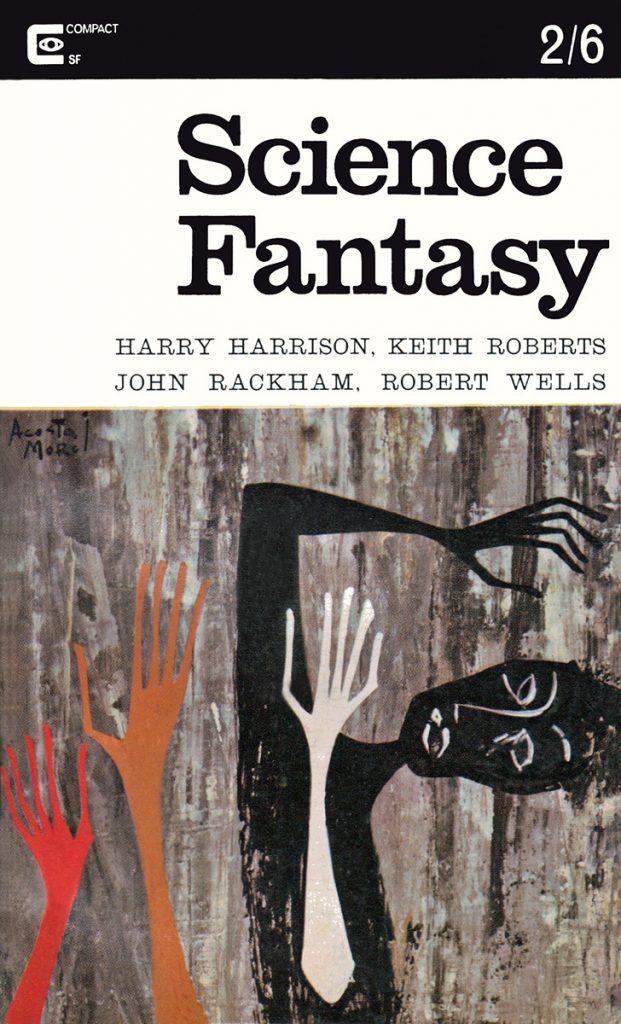
 [Image by the writer]
[Image by the writer]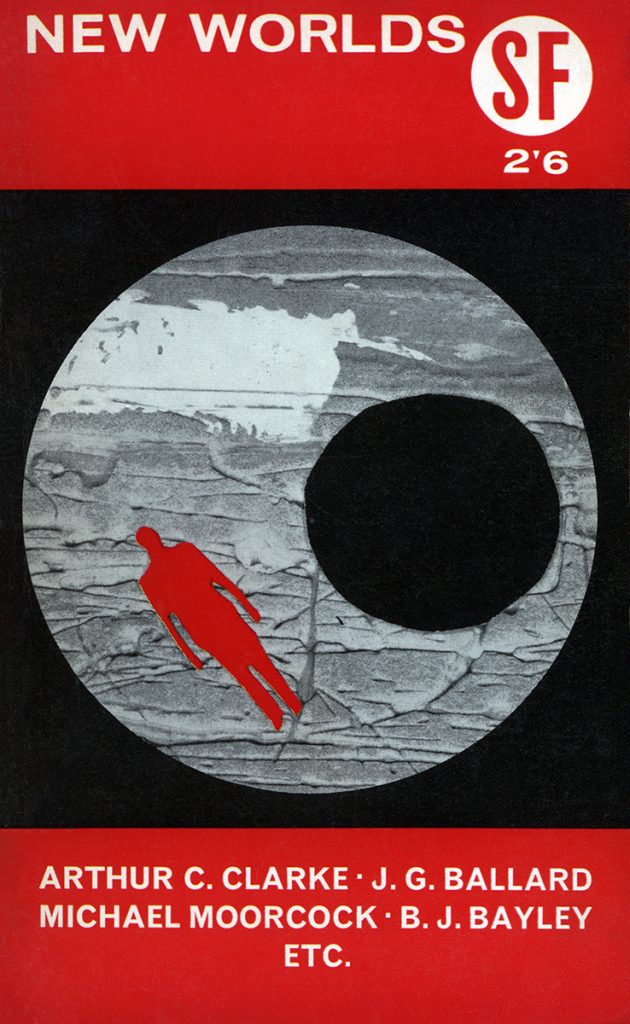



![[January 14, 1965] The Big Picture (March 1965 <i>Worlds of Tomorrow</i>)](https://galacticjourney.org/wp-content/uploads/2019/12/Worlds_of_Tomorrow_v02n06_1965-03_0000-2-672x372.jpg)



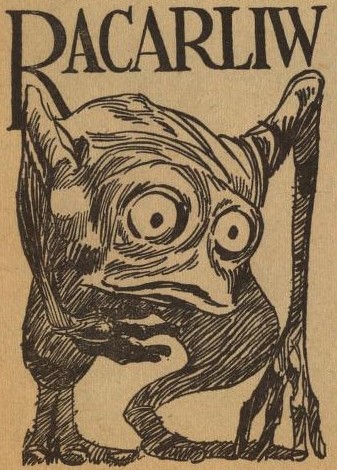
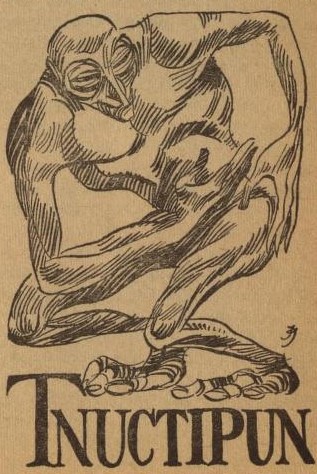
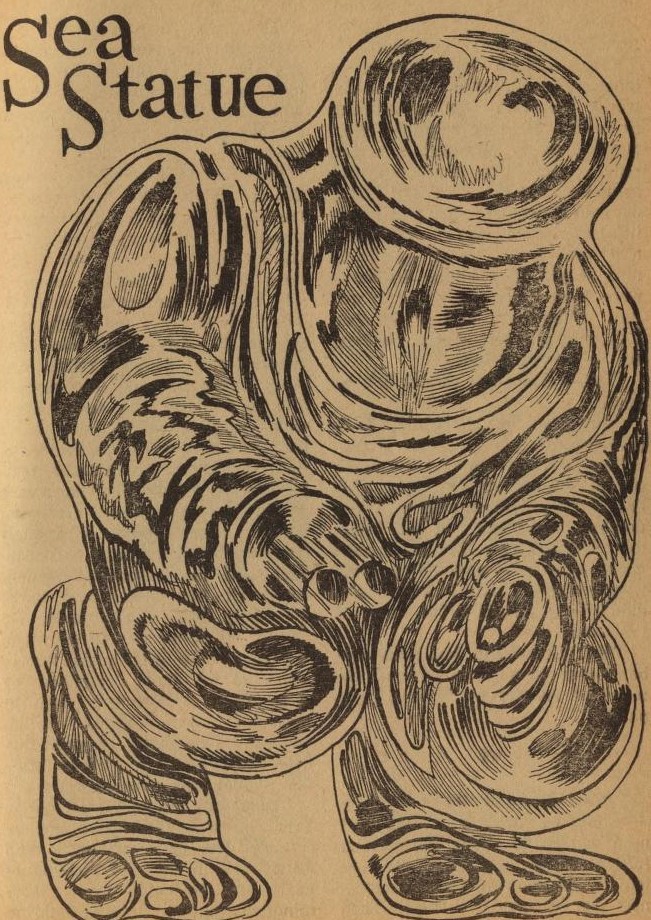
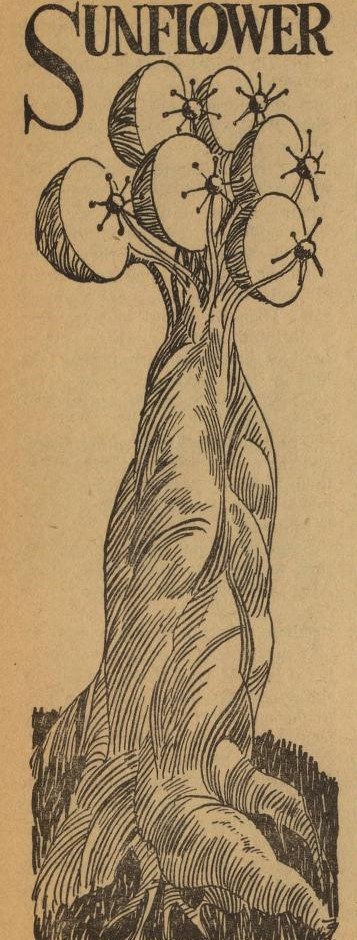
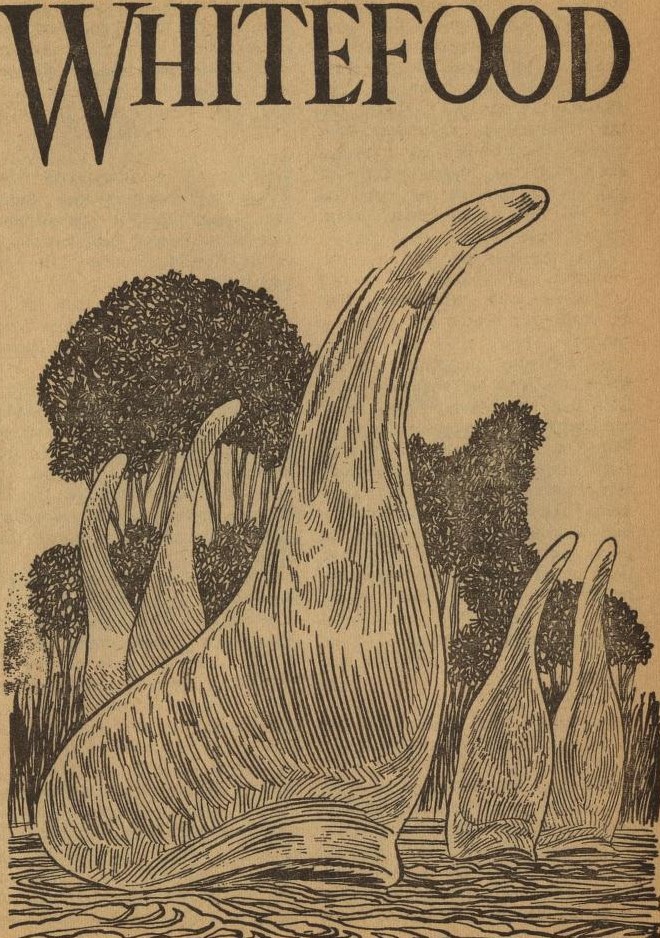

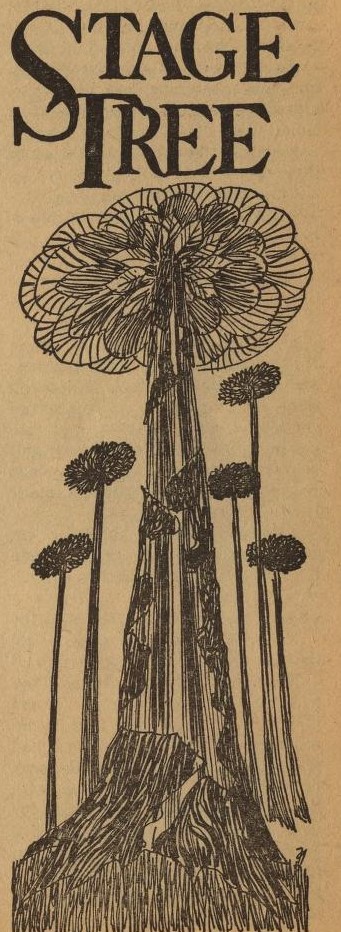

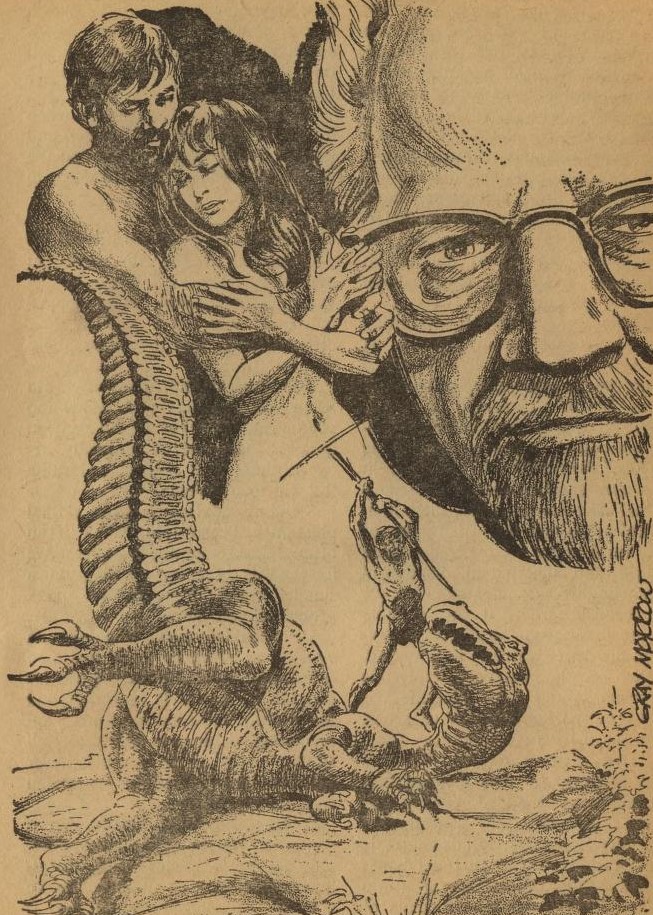




![[August 31, 1964] Grow old along with me (Brian Aldiss' <i>Greybeard</i>)](https://galacticjourney.org/wp-content/uploads/2019/08/640831cover-329x372.jpg)




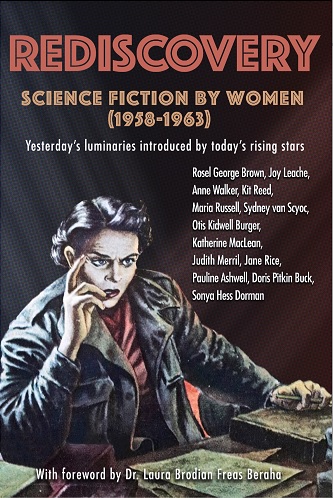
![[July 16, 1964] Un-Conventional (August 1964 <i>Galaxy</i>)](https://galacticjourney.org/wp-content/uploads/2019/07/640716cover-398x372.jpg)

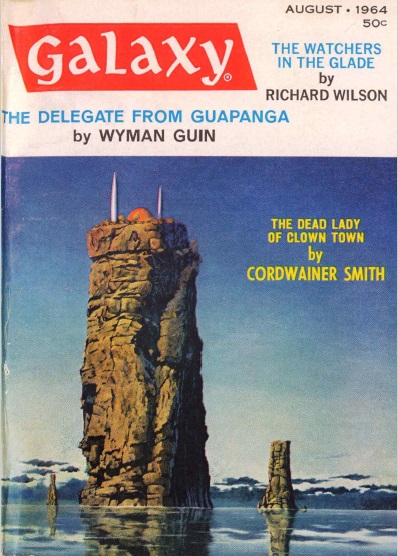
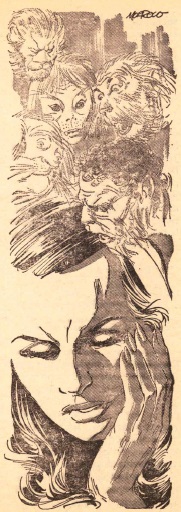
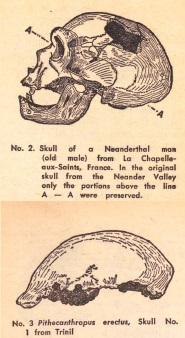

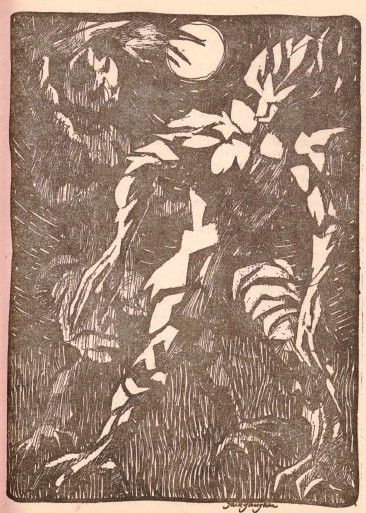
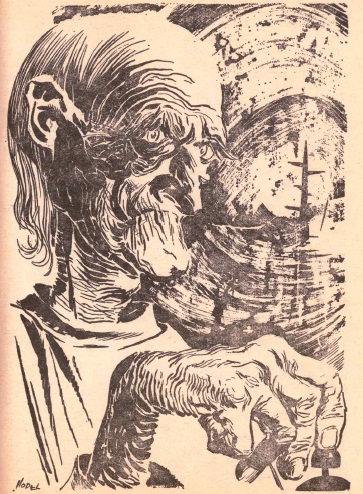
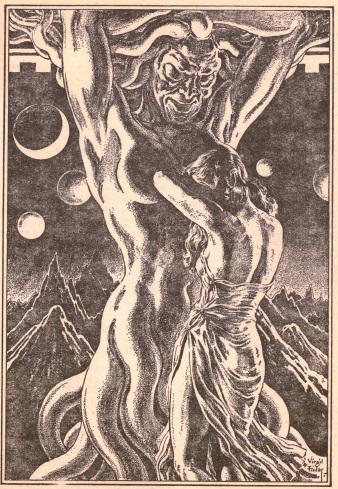
![[February 17, 1964] Breaking Taboos (April 1964 <i>Worlds of Tomorrow</i>)](https://galacticjourney.org/wp-content/uploads/2019/02/6312017cover-672x372.jpg)
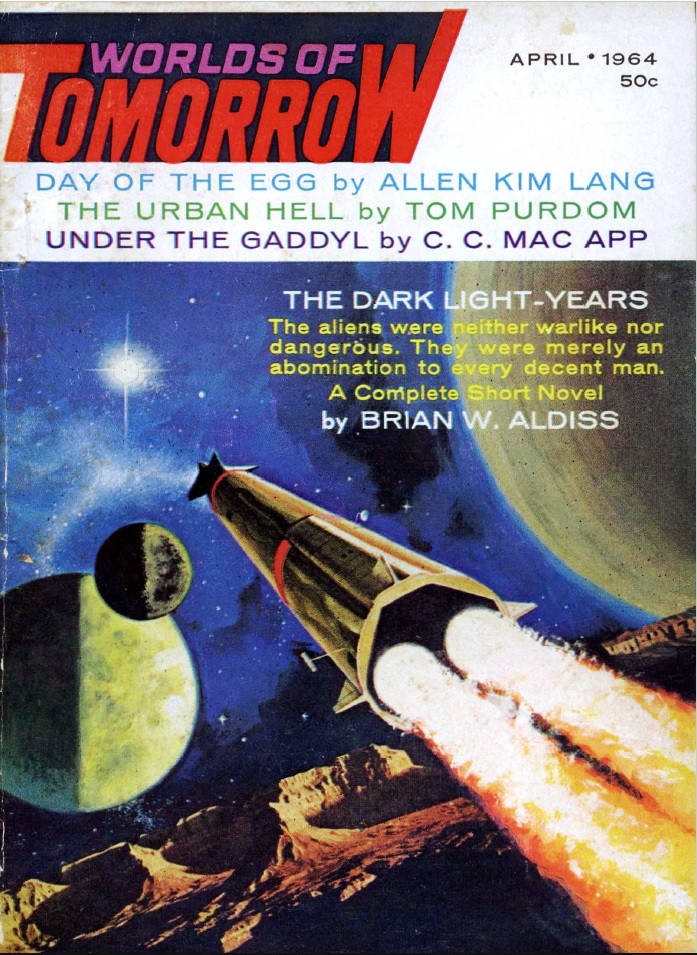
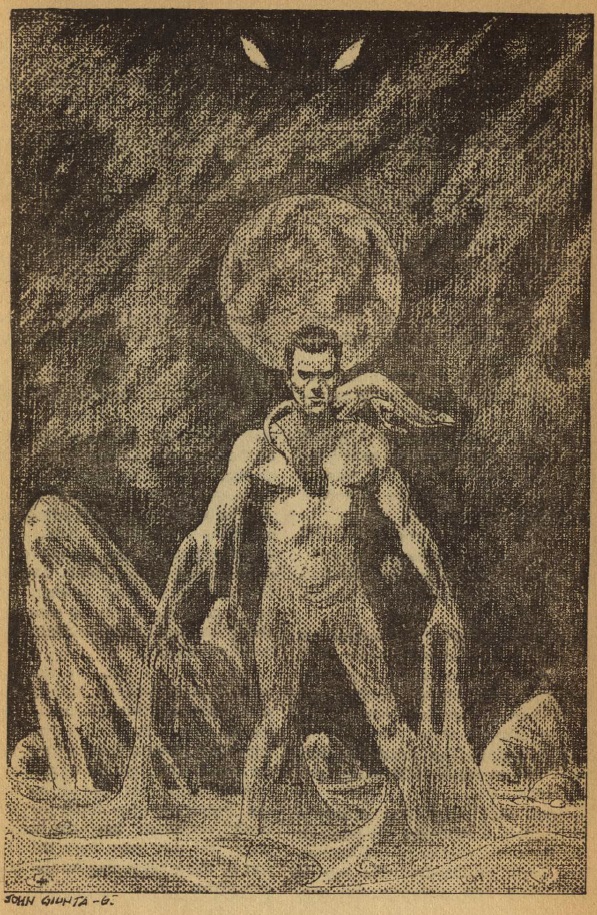
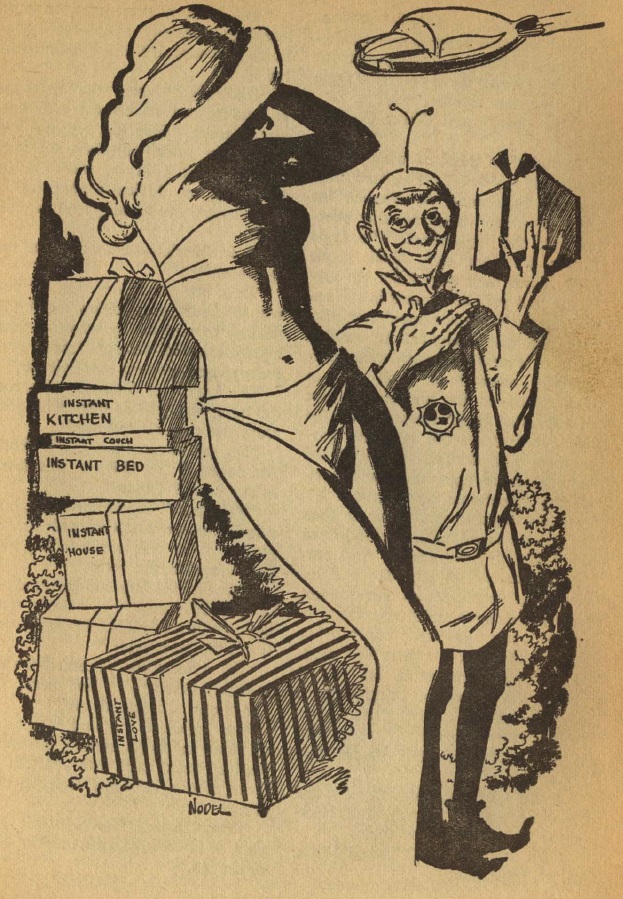
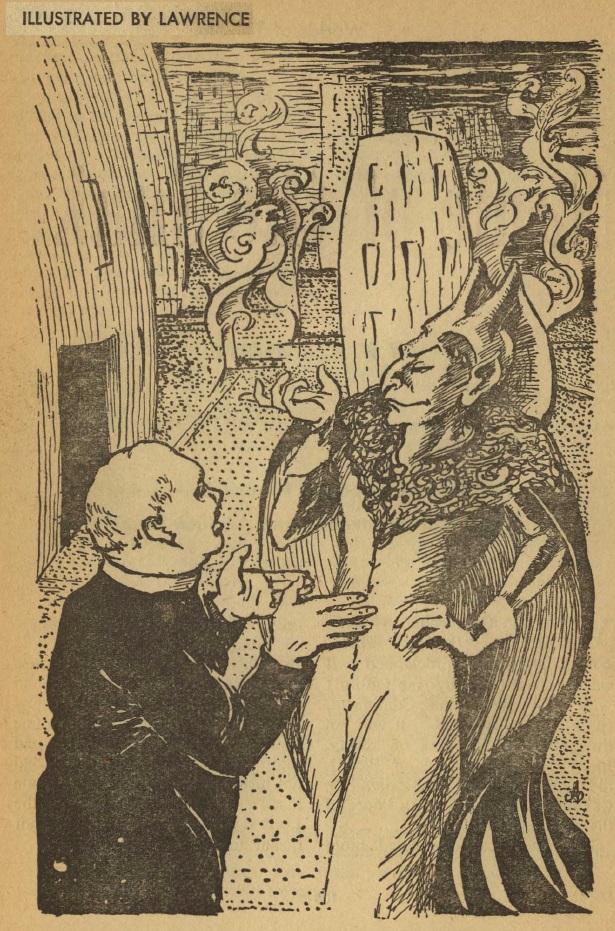
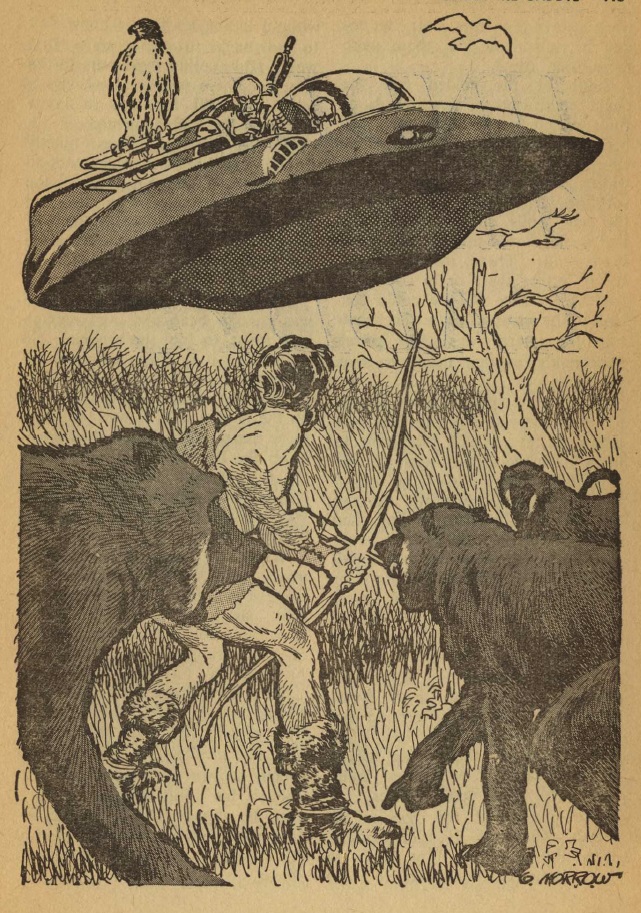
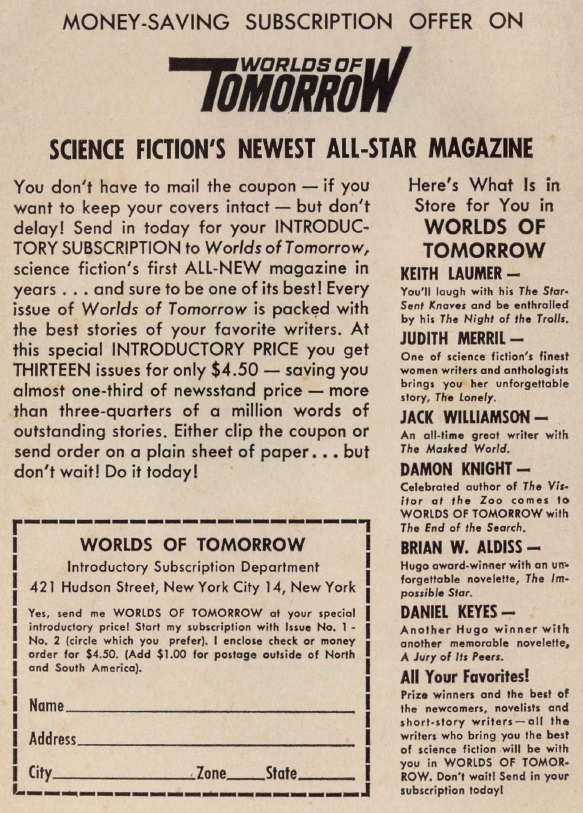
![[January 28, 1964] Beatles, Prisons and Doctors ( <i>New Worlds</i>, February 1964)](https://galacticjourney.org/wp-content/uploads/2019/01/640128cover-652x372.jpg)
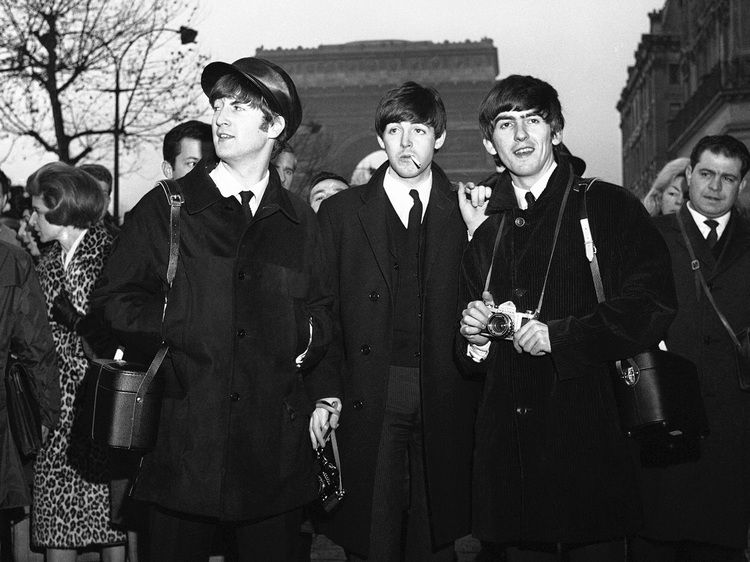

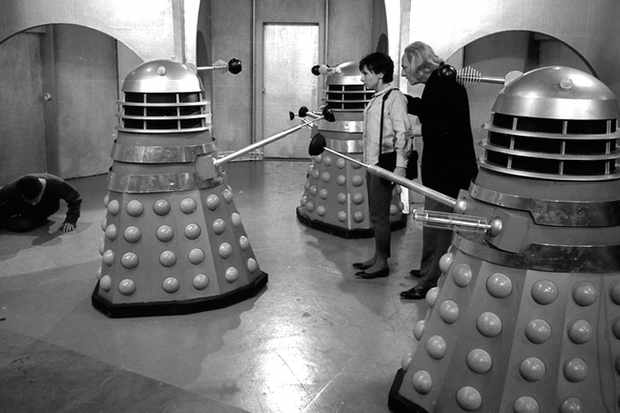
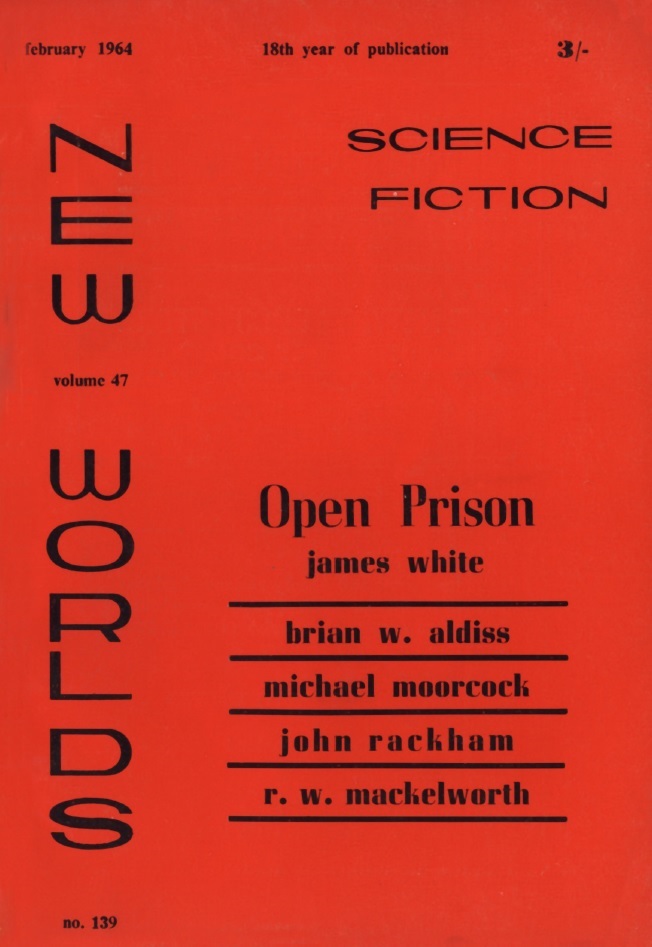
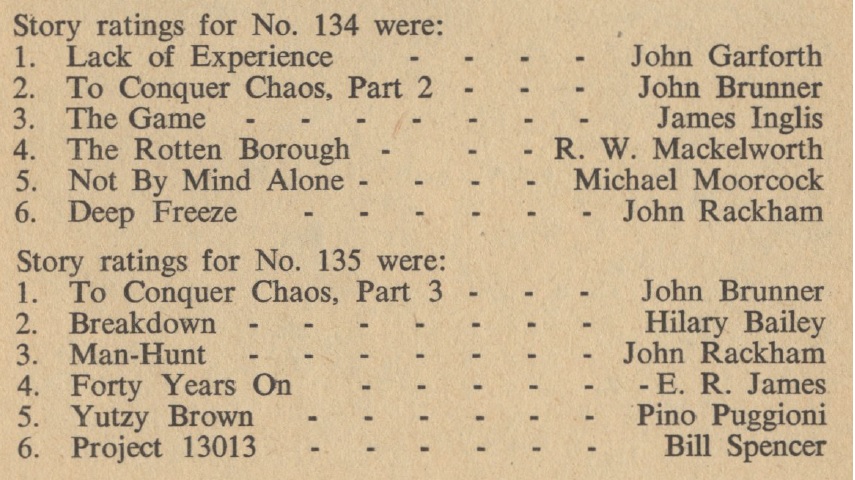
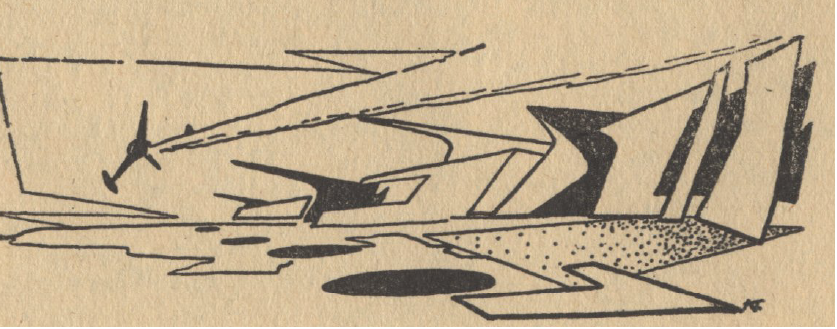
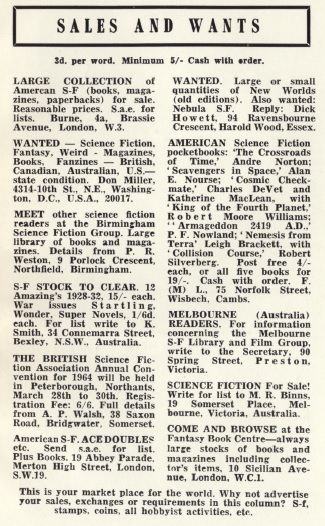
![[January 10, 1964] Journey to the Stars, Journey into the Self (<i>Starswarm</i>, by Brian Aldiss)](https://galacticjourney.org/wp-content/uploads/2019/01/640110cover-672x372.jpg)

